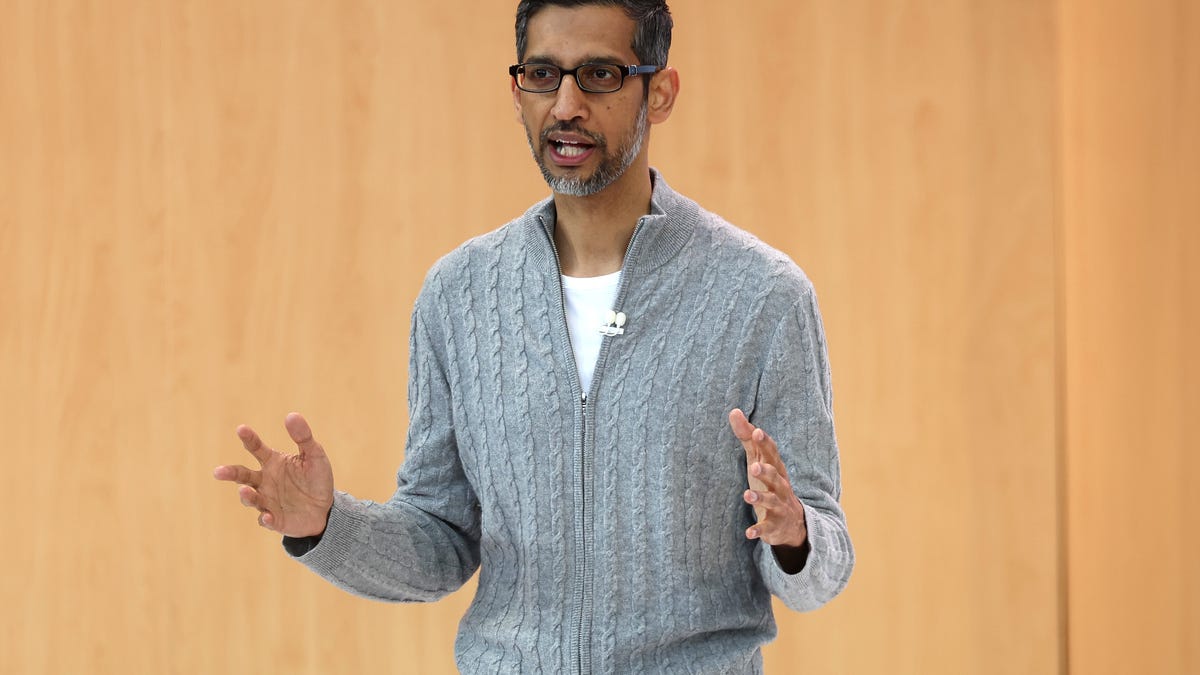Google Breaks Silence: The Controversial Shift on AI in Warfare and Surveillance
In an unexpected and controversial decision, Google has shifted its stance on the use of artificial intelligence (AI) in military applications and surveillance operations. This bold move not only marks a significant change in the tech giant’s policies but also raises profound ethical questions about the role of technology in modern warfare and global security.
Background: Google’s Previous Commitments
Historically, Google has maintained a clear position against using its AI technologies for military purposes. In 2018, following backlash from employees and the public, the company pledged not to help the U.S. military with AI initiatives, particularly regarding drone warfare. The company outlined its ethical principles, emphasizing a commitment to not design or deploy AI for use in weapons or surveillance systems that could cause harm.
This commitment was not just a public relations measure; it stemmed from a growing awareness of the moral implications associated with AI technologies in combat scenarios and surveillance. Google’s stance aligned with a broader movement among tech companies aiming to ensure that their innovations contribute positively to society rather than exacerbate conflict or violate human rights.
The Shift: What Prompted Google’s Decision?
Fast forward to today, and Google’s recent announcement has left many industry analysts and ethical watchdogs questioning the motivations behind this dramatic shift. Several factors appear to have influenced this decision:
- Market Competition: As defense budgets grow globally, tech companies are increasingly vying for lucrative contracts in military AI applications. Google’s competitors, such as Microsoft and Amazon, have already secured significant military contracts, potentially pressuring Google to reconsider its stance.
- Technological Advancements: The rapid evolution of AI capabilities has raised the stakes in national security. As nations develop advanced technologies, the need for robust AI solutions in defense becomes more pressing, and tech firms are compelled to adapt.
- Government Partnerships: Increased collaboration between technology firms and government agencies has created a landscape where the use of AI in surveillance and defense is not only accepted but often encouraged. This shift could represent a strategic pivot for Google to remain relevant in an evolving geopolitical climate.
Ethical Considerations: The Debate Intensifies
The decision to embrace AI in warfare and surveillance has sparked a heated debate among ethicists, technologists, and the general public. Some of the key ethical concerns include:
- Autonomous Weapons: The potential for AI to be used in autonomous weapons systems raises significant ethical dilemmas. Questions surrounding accountability, the decision-making process in life-and-death situations, and the potential for unforeseen consequences loom large.
- Privacy Violations: The use of AI in surveillance can infringe on individual privacy rights. As tech firms like Google expand their involvement in these areas, the fear of mass surveillance and the erosion of civil liberties intensifies.
- Escalation of Conflict: The introduction of advanced AI technologies in warfare may lead to an arms race among nations, increasing the likelihood of conflict. The potential for AI-driven warfare to escalate beyond human control raises alarm bells among security experts.
Responses from the Tech Community
The tech community has been vocal in its reactions to Google’s decision. Many former and current employees have expressed their discontent, fearing that this move could compromise the ethical integrity that the company once upheld. Whistleblowers have emerged, arguing that Google risks prioritizing profits over ethical considerations, potentially leading to dangerous outcomes.
Conversely, some in the industry argue that the integration of AI into military applications could lead to advancements in defense mechanisms that may ultimately protect civilians and reduce casualties. Proponents believe that responsible development and oversight could mitigate the risks associated with AI in warfare.
The Role of Regulation and Oversight
As tech giants navigate these complex waters, the role of regulation and oversight becomes paramount. Governments around the world are grappling with how to create frameworks that govern the use of AI in military and surveillance contexts. The European Union, for instance, has been at the forefront of advocating for ethical AI usage, and similar initiatives are emerging globally.
Establishing clear guidelines and standards for the development and deployment of AI technologies in these sensitive areas is essential. This could include:
- Transparency Requirements: Companies should be mandated to disclose their AI applications, particularly in military contexts, to maintain public trust.
- Ethical Audits: Regular audits of AI systems used in defense could help ensure compliance with ethical standards, providing checks and balances.
- Public Engagement: Engaging with the public and stakeholders in discussions about the implications of AI in warfare and surveillance can foster a more informed and balanced dialogue.
The Future of AI in Warfare and Surveillance
Looking ahead, the implications of Google’s decision to utilize AI in military applications and surveillance are profound. As the technology evolves, so too will the debates surrounding its use. The potential benefits of AI in enhancing national security must be weighed against the ethical implications of its application in warfare and surveillance.
For Google, this move could redefine its position in the tech landscape, forcing it to navigate the murky waters of military contracts while maintaining its public image. The company must tread carefully, balancing innovation with ethical responsibility.
Conclusion: A Call for Ethical Innovation
Google’s controversial shift on AI in warfare and surveillance serves as a wake-up call to all tech companies about the responsibilities that come with innovation. As the lines between technology and warfare blur, a collective effort from industry leaders, regulators, and the public to ensure that AI serves humanity rather than endangers it is more crucial than ever.
As the debate continues, one thing remains clear: the future of AI in military applications will not only shape the landscape of warfare but also challenge our understanding of ethics, responsibility, and the very nature of security in the 21st century.
See more Future Tech Daily

